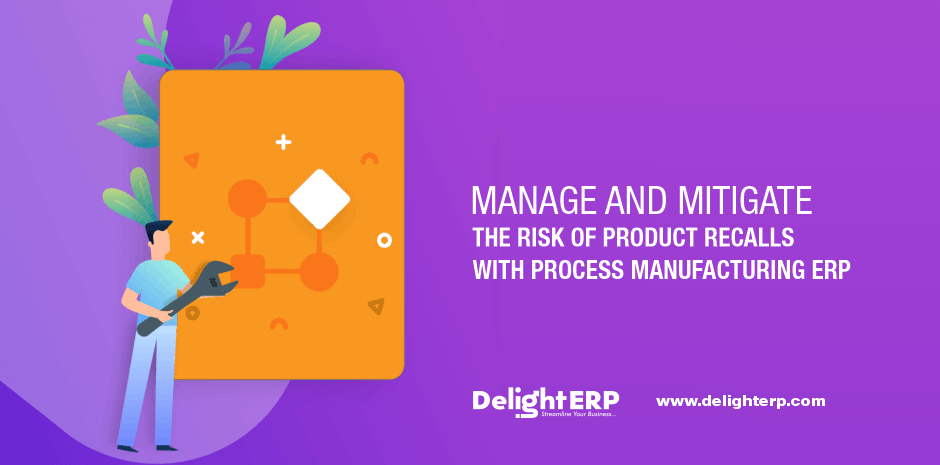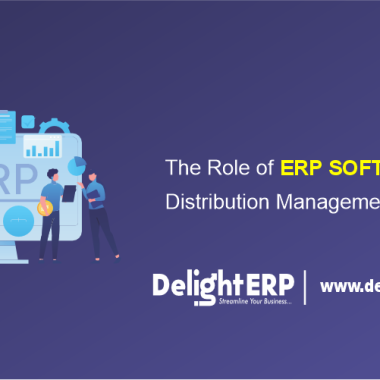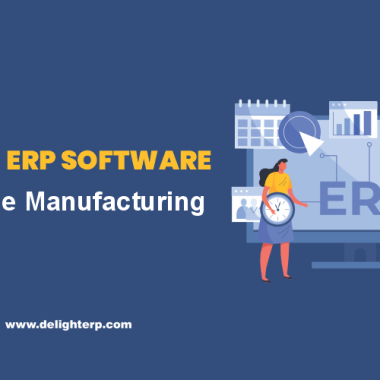Introduction
For many manufacturing industries, managing and limiting the risk of product recalls is essential. The industry may also simply handle product recalls with the help of Process Manufacturing ERP software.
Product recalls have a significant financial impact on the organization. That is why companies must prepare for product recalls in advance. In a competitive market, industries that efficiently manage product recalls and save costs can enhance their profits.
An industry-specific ERP solution is a centralized business system with important industry features that includes a record-keeping system as well as capabilities to help with recall preparation and risk mitigation. While a product recall is ultimately the responsibility of the manufacturer, an enterprise resource planning system is critical in supporting and promoting overall recall preparation and minimization.
Mange products recall with process manufacturing ERP
Now, consider the following points to gain a better understanding of how ERP helps industries in reducing product recalls and efficiently managing recall processes.
1. Supply Chain Management
In simple terms, Supply Chain Management is the process to manage the supply chain of the companies.
In the industries, they have to provide the materials to their clients in the given time to maintain their trust. By providing the products in between the deadline the client is satisfied and with the client, satisfied businesses can increase their profits to reach their goals.
To ensure the purchase of quality raw materials from trustworthy vendors, an ERP facilitates industry standards for supplier management and risk assessment within the system. Its mission is to track approved suppliers for each component of the product and document complete supplier information, QC test results, and risk levels to ensure internal and customer requirements are met.
Information on materials that can be obtained through the vendor, applicable certificates, quality control results, and other relevant supplier information is maintained in the ERP’s central data system for approved or activated vendors. Each dealer’s risk rating is likewise saved on record to make sure that the unique dangers related to dealer recall and finished products are maintained.
Apart from activating providers, an ERP system allocates and manages approved substitutes to give approved alternatives if a major supplier’s materials become unavailable. Because the investigative work on other suppliers has already been completed, this positions a company well in the supply chain, decreasing the need for and risk associated with onboarding an unknown supplier during an emergency.
Vendors are entered into the system and sorted by preference and/or risk level so that they may be readily identified and used if a supplier becomes unavailable, giving businesses the tools they need to manage supply chain risk to safety.
Also Read: What Is Supply Chain Management (SCM)?
2. Inventory Management
Inventory Management is important to increase the revenues of the companies while decreasing the cost of the productions. While maintaining the raw materials in the industries is essential for completing the production in time.
Businesses use the enterprise resource planning system for inventory management. Through the software companies keep the record of the Raw-materials and maintain the stock. While using the system the manufacturer does not face overstocks and does not even face the lack of raw materials.
And for the quality products industries need to ensure the better quality raw materials in the perfect quantity. Using barcode scanning to hyperlink product and lot records to batch tickets, QC testing results, delivery documents, and labels, an ERP system presents end-to-end tracking, preserving a complete document that tracks raw ingredients, work-in-progress, and at last final products manage throughout the supply chain.
The ERP supports sound manufacturing standards that help recall preparedness – maintaining current Good Manufacturing Practices (cGMP), GFSI compliance, FDA reporting, and other industry-specific regulations to provide a documented audit trail with the ability to adapt as requirements change – with full manufacturing, inventory, and reporting integrations.
Minimizing recall risk across the whole supply chain—from raw materials to the delivered end product—requires managing protocols to assure the quality of arrivals and departures materials. Formulas, recipes, and instructions are managed, scaled, and checked with an industry-specific ERP solution to assure product consistency throughout the production process.
3. Reporting
Businesses can prevent or eliminate product recalls by reporting all production processes. Because organizations enhance their output and improve the quality of their products while increasing profits by examining and reviewing reports.
Making reports on production operations, sales, raw material purchases, client lists, and so on is not an easy task. In reports created by humans, there are occasionally multiple mistakes and errors. Ultimately, industries require software that allows them to generate error-free reports.
In the case of a recall, the system may provide lot tracking reports that include everything from raw materials to dispatched finished goods. These reports can be created in minutes rather than the hours it would take if the data were kept in multiple software programs.
Companies can get error-free reports by installing ERP software, and by analyzing the reports, they can identify their mistakes and reduce product recalls while manufacturing and managing the supply chain properly.
Product Recall Management with Process Manufacturing ERP: A Strategic Approach
Every company has a different strategy for increasing sales and attracting new customers to buy their products.
While establishing an ERP system, a firm can also use the following strategies to handle product recalls.
Preparing for recall
With their machinery and AI, manufacturing industries can produce a large number of products at the same time. Always be prepared for both good and negative responses when delivering materials to clients.
Several times during the supply operations, customers receive damaged items or a lower amount than they ordered. As a result, they return these materials and request that they be replaced with appropriate materials. As a result, the company must be prepared for a situation like this.
They can manage their customers and deliver the best customer service by using an enterprise resource planning system to replace products and solve problems.
Policy and Planning
The policy is a set of rules that humans follow, and by adopting policies, organizations may better manage product recalls.
For example, numerous manufacturing companies create delegated products, and there is a potential that the products will be damaged during delivery. As a result, they create some guidelines and assign a contract to avoid any damage and retain the client relationship.
Organizations can think from the view of their customers while developing policies, and they must plan properly before doing so. Additionally, businesses are prepared to provide customer service to their customers and convince them to follow the policy if they disagree.
Companies bravely handle product recalls by establishing policies and plans for providing customer support and resolving issues related to product damage.
Strong Communication
Companies hire employees with good communication skills who can solve any client’s problem.
Even when customers contact companies after purchasing products and discover faults, employees with good communication skills help them and try to keep their trust in the companies.
The manager with overall responsibility for recalls should identify significant recall stakeholders as part of recall preparation and help individuals in communications (beyond immediate consumers). Distributors, dealers, or retailers, financial institutions, employees, service centers, sales forces, and regulatory agencies are all possible candidates.
Employees can easily provide client services while using ERP software without consuming too much time. Because the sales team records the customer’s information when they purchase things, they can quickly retrieve the information and simplify their work.
Logistic and Information services
The physical backbone of a successful recall process is a company’s logistics and information systems. They assist the recall champion and the response team in all of their efforts. They must also be adaptable enough to limit the effects of a recall without disrupting the normal operations.
While operating the ERP software, the logistics and information systems should also be able to send product defect notifications. During a recall, logistics and information systems should be able to track down each good they’ve handled. That is, using identifiers like serial numbers, the systems should be able to identify a product failure by batch, plant, process, or shift.
After the recall, a review of the logistics issues may reveal useful information that may help to improve future distribution.
Recommended for you: ERP Bill Of Materials System For Managing Production Costs
Concussion
Companies or businesses dedicated their time to the production of the products. They also set the price of the products based on the manufacturing costs and profit margins. However, when products are recalled, the cost of the products increases, lowering the revenue ratio and resulting in reduced profits than they desired. They can, however, reduce recalls and manage recall processes more efficiently with the ERP system.
Schedule a Free Demo with one of our ERP experts.




